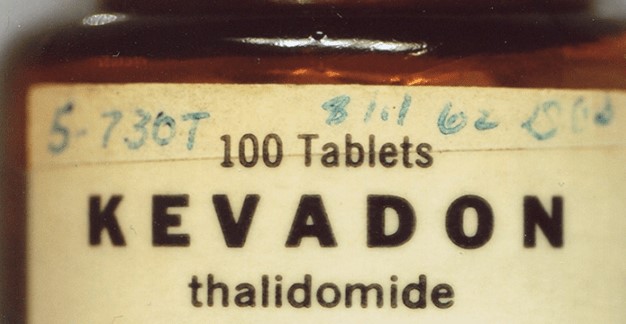The NGO Physicians for Human Rights (PHR) has come out in favor of strong governmental regulation of the drug industry in Israel to defend the health of the general public.
In a statement it recently released, PHR writes: “The Government of Israel works on the premise that government oversight creates inefficiency because it forces companies to take unnecessary steps, thereby increasing costs, which are ultimately passed on to the consumer. This is not a serious argument. Bad regulation is not corrected by no regulation but by better regulation. The State of Israel has a responsibility to train a new generation of regulators with broad professional skills and robust enforcement and investigation powers, who will represent the public interest precisely in those cases in which the public cannot represent itself.”
To provide an historical context for its call, PHP wrote the following:
“Kevadon was a painkiller given to pregnant women in the 1950s. The drug, which was approved for sale in many countries in the world, was not sold in the USA, where it failed to receive approval from the FDA. The regulatory agency’s reviewer, Frances Oldham Kelsey, did not trust the information provided by the company regarding the testing it had done. The company applied to the FDA six times, but Kelsey persisted in her refusal. In 1961, it was revealed that the drug, by then known as Thalidomide, had caused birth defects in thousands of babies.
“However, the popularity enjoyed by Kelsey and her colleagues did not last long. In the 1970s, as capitalist neo-liberalism was on the rise, the term regulation became synonymous with encumbrance, inefficiency and the stifling of private enterprise. Policy makers in the west prided themselves on deregulation measures, which were perceived as the obligatory trimming of the fat that would jump start economic growth. Proponents of this approach believed the interest manufacturers and service suppliers have in keeping their brands attractive and avoiding lawsuits would result in self-regulation, which is more effective than government regulation.”
Contrary to the position taken by the neo-liberal governments of Israel, PHP continues:
“Strong regulation is there to represent the public’s interests precisely in situations where the former is not true. A regulatory system is responsible for identifying situations in which inappropriate professional practices develop – for instance, inexperienced interns performing significant medical procedures without supervision by senior physicians, or inequitable allocation of resources which are funneled to areas where there is competition over areas where there is none. Regulation is responsible for screening drugs and technologies that are no better than their alternatives and that are successful partly because their suppliers invite doctors to fancy conferences and pamper them with trips and benefits.
“If we want to cure the public health system of its ailments, we have to change the discourse on regulation. Public services, especially those people cannot go without or postpone, must be well regulated. Regulation is the key to preventing and dismantling cartels and monopolies, weeding out unworthy care professionals, severing the inappropriate relationship between medical professionals and pharmaceutical companies and preventing the inequitable allocation of public resources by mega corporations that are not transparent.”
Physicians for Human Rights (PHR) stands at the forefront of the struggle for human rights – the right to health in particular – in Israel and the Occupied Palestinian Territories. Founded in 1988 by a group of Israeli physicians led by Dr. Ruchama Marton, PHR works to promote a just society where the right to health is granted equally to all persons under Israel’s responsibility.



